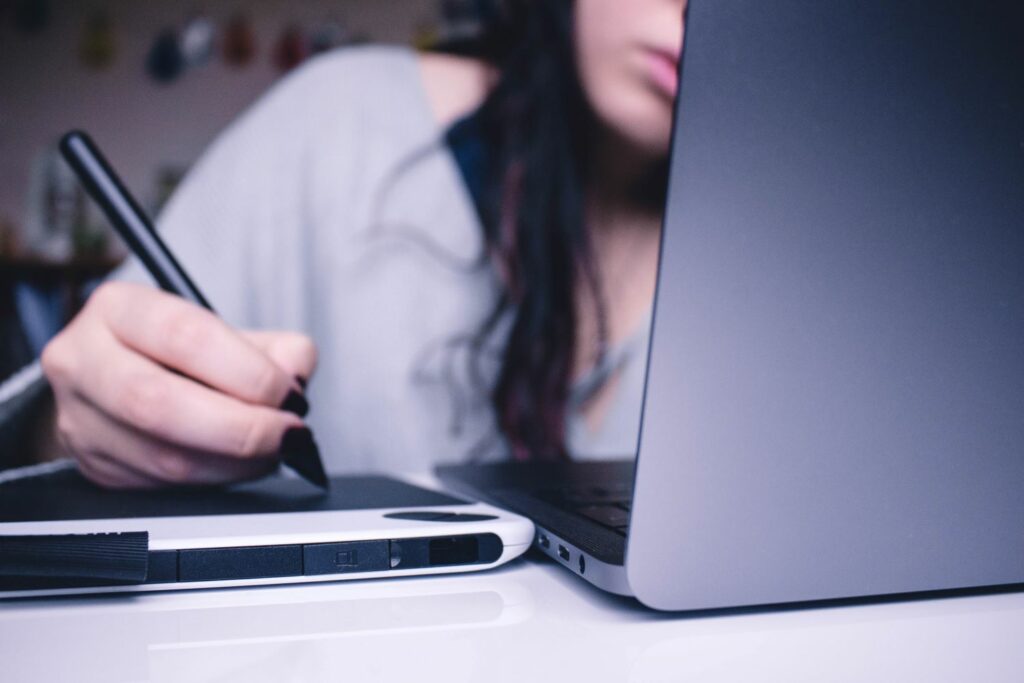Dealing with Uncertainty in PhD Projects: 5 Expert Techniques on Managing Stress and Building Resilience
If there is a single word characterising the modern environment, it is ‘uncertainty’. We live in a world torn apart by political conflicts, economic declines, and global pandemics. Over the previous decade, more and more people have suffered from chronic anxiety since they simply do not understand how to live in an environment where they have no solid elements to rely on. The advancement of modern technologies is making hundreds of job positions obsolete while any long-term projects may not survive long enough or retain their relevance by the time of their completion.
For PhD students, the degree of uncertainty can be even higher. Increasing academic pressures, the absence of a sufficient number of positions in academia, unclear employment perspectives, lack of funding opportunities, and skyrocketing costs of living make it difficult to remain calm and maintain mental health.
The problem is that things are unlikely to change for the best in the next 3-4 years of your PhD project. If you are willing to undertake it, developing higher levels of endurance and mental resilience may be the only viable strategy that you have. Luckily, expert psychologists have developed multiple exercises and strategies in this sphere to help people in stressful situations cope with them.
Unfortunately, these methods require time and effort in the same way as your physical endurance. You cannot become a world-class athlete overnight. To build your body’s resilience, you have to lift weights starting with the smallest ones and progress to the point when you can withstand extreme amounts of physical stress without breaking a sweat. The following five expert techniques will help you build similar capabilities for your mental health and protect yourself from any adverse factors hindering your PhD progress.

1. View Your Failures as Temporary Limits to your PHD
Imagine a professional athlete brutally criticising oneself for not being able to lift a certain weight during a regular gym session. While this looks weird, this is the exact type of behaviour adhered to by many people willing to develop greater resilience. They blame themselves for every small failure such as the inability to complete a small task, eating too much due to stress, or emotionally reacting to yet another stressor in their life.
The main problem with this strategy is the fact that failures are diagnostic tests crucial for finding your actual limits. The aforementioned athlete keeps lifting weights until they feel tired or they find their current maximum strength. This ‘failure’ actually doesn’t mean anything in the grand scheme of things. They can break this barrier tomorrow after a good night’s sleep or work on raising it higher over the course of several months.
The same is true for your academic failures or any other type of failure in life. This time, you were not ready for the challenge. So what? You now have the time and knowledge to better prepare for such future challenges. Resilience is something built in a matter of weeks and months rather than minutes and hours. By simply repeating your daily exercises, you will gradually develop the strength you need to lift a certain weight. Unfortunately, life is not similar to a gym, which is why you can sometimes encounter challenges that are well beyond your level of preparedness. Accept this fact and do not view it as a sign that your training routine is wrong or ineffective. Give yourself the time necessary to become an athlete in dealing with stress.
2. Find Your Locus
The theory of internal and external locus of control is an extremely important concept that helps you avoid the ‘excessive weight’ challenges discussed earlier. Put simply, there are things in life that fall within your sphere of influence and the ones that cannot be influenced at all. You can prepare for an academic test if you start working in advance and have sufficient time and resources. You cannot prepare for the death of your close relative. You also cannot prepare for an academic test if you have to spend the previous week helping your family members organise the funeral. Many people fail to diversify between these two scenarios and completely ignore the role of resources and external factors that are beyond their reasonable control. Uncertainty is something that can hit unexpectedly, leaving you helpless and stressed.
The best way to avoid burnout and frustration is to develop an in-depth understanding of the locus of control. Think about your circumstances as a shopping list. You have a certain amount of money. You also have some things you want to buy. In the ideal scenario, the situation will develop to your benefit and will help you acquire everything that you want. However, you cannot control whether specific stores will stock the items you desire in the required amounts. You also cannot fully control emergencies such as the need to visit a dentist if you suddenly have intense tooth pain. Such force majeure circumstances will simply mean that you will have to delay your shopping for later.
If you do not accept the risk of such uncertainties and expect everything to go exactly as planned, you expose yourself to stressors you cannot control. Since you have no power over all emergencies, you need to learn how to live in a turbulent world where nothing is 100% guaranteed. The best way to acquire this valuable skill is to write worst-case scenarios for every part of your life. This exercise will demonstrate that even the worst force majeure issues can be overcome with academic delay requests, external support, and some amount of money. You simply have to accept the things you cannot change and keep progressing towards your goals without having any hard feelings. After all, you cannot stop the rain ruining your Sunday plans but you can take your umbrella and try to make do with what you have.
3. Learn to Meditate
For those who struggle with accepting the uncertainty in the way described above, there are specialised techniques in this sphere developed over centuries by both ancient and modern practitioners. Traditional mediation may not be fully applicable to present-day realities, which is why we would advise paying attention to mindfulness-based stress reduction (MBSR) programmes instead. They were designed by university scientists focused on the practical aspects of relaxation and concentration techniques rather than the religious components of such practices. This results in techniques that have been tested to work for the majority of academic professionals and can be applied by any person in the same way as physical resilience training exercises.
While traditional MBSR courses are usually run in an offline format and usually require a supervisor, these techniques can also be learned from free online courses. You will need 30-40 minutes per day to get a basic understanding of these exercises and learn how to make them properly. They progress from seated meditation sessions to movement practices that can be performed at a nearby park during your regular walks. Mindfulness skills teach you how to focus on being ‘here and now’ instead of thinking about your hardships and the increasing environmental uncertainty. As a result, you learn how to fully concentrate on simply making the next small step such as completing your literature review section or writing 10 application letters to several scientific conferences.
This approach is highly similar to both traditional relaxation techniques and therapy methods including logotherapy originally designed by a Nazi death camp survivor. If they were good enough to retain their mental health in a living hell, they are probably good enough to survive your PhD project. Start small and give yourself enough time during the initial period to understand mindfulness exercises. Over time, you will develop Superman relaxation skills by practising these techniques properly over and over again. In several months, most students are able to ‘flush’ their stress via these embedded instruments in a matter of several seconds and instantly restore their concentration and tranquillity.
4. Stop Doomscrolling
The world has become a terrible place to live during the past several years. Large-scale lockdowns, political tensions, and economic issues affect all countries to a certain degree. With that being said, our ancestors probably lived much happier due to not being able to learn all bad news instantly via social media. Doomscrolling is one of the genuine XXI century problems that is becoming worse with every coming year. Most social media platforms and news agencies try to shower you with bad news to make you feel less certain about your future. Our natural reaction is to learn more about our environment to increase our odds of survival. However, doomscrolling does not help us achieve this goal and only makes us more restless.
In terms of your locus of control, the majority of news is the things you cannot influence with the resources you possess. Learning about inflation will not help you earn more as opposed to progressing with your PhD thesis to get a better job in the industry. Hence, you need to revise your priorities regularly and ask yourself whether the information you are reading helps you succeed. This exercise is a tough one since casual newsfeed browsing has become a deeply interiorised habit for most of us. However, doomscrolling elimination is something that must be done to build resilience. When you think of it, there is no use lifting weights at a gym to become more resilient while also compulsively beating yourself with a baseball bat. This activity does not increase your strength but increases the risks of injury.
5. Kill Your Ego
The last recommendation may sound like something esoteric rather than a practical advice. However, killing your ego may be the key to gaining inhuman levels of resilience in any sphere of your life. As we grow up, we learn to value ourselves and build our expectations of what we deserve. We expect to become perfect in everything we do. We want to achieve 100% of our planned goals. We are truly committed to completing our PhD projects in 3 years rather than 5-6 years. This is exactly why the aforementioned interruptions caused by external factors shatter our fragile egos to pieces. We cannot tolerate the horror of imperfection. With humility quickly becoming a swear word, we as humans are killing our resilience with the attempts to succeed beyond our wildest expectations.
The opposite way implies reminding oneself that you are completely generic. You are not unique and there are thousands of people who are as great as you. The trick here is the fact that you stop treating your problems and failures as something terrifying. If your non-unique path has already been completed by thousands of people, this means that you can learn from their experiences. This is a deeply liberating thought allowing you to stop unconsciously competing against your unrealistic expectations of self. Remind yourself that you are a regular PhD student who excels at some areas but falls short in other ones. As a regular human, you are prone to failures but you can learn from them and become better day after day. This humble mindset helps you communicate with others without pride while also using the small-steps approach to reach your goals. Focusing on the effort rather than the desired results is really the fastest way to ‘getting there’ in any sphere.
Use these tools to Survive your PhD Studies
These 5 techniques for dealing with uncertainty combine mindset adjustments with practical skills acquisition. Similar to strength training and martial arts, you need to work on these instruments in order to truly make them your own. If you practise these skills for several months, you may increase your resilience to the degree allowing you to substantially improve your quality of life.
However, true results from their application can be obtained after working in these areas for several years. By the time you complete your PhD project, you can simultaneously become a real Zen master capable of achieving your goals without excessive anxiety and stress. This capability is something that is worth the effort since it can be extremely useful for all areas of your life beyond your thesis.

